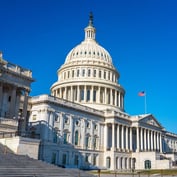(Bloomberg) — Consumer confidence unexpectedly fell in May from a nine-month high, showing Americans are being shaken by rising grocery bills and elevated fuel costs.
The Thomson Reuters/University of Michigan preliminary sentiment index decreased to 81.8 from 84.1 in April. The median projection in a Bloomberg survey of economists called for a gain to 84.5.
Food prices have risen and the cost of gasoline has held near its highest level of the year, making buyers less secure in their finances. Falling unemployment, rising home prices and near-record stock indexes could provide support for sentiment, giving Americans the wherewithal to boost the spending that makes up 70 percent of the economy.
“Higher energy prices, higher prices for gas, and the rising consumer food prices would be something I would look at as a factor holding back confidence gains,” Robert Rosener, an economist at Credit Agricole CIB in New York, said before the report. “We’re watching these numbers closely to see what the household read is, whether they’re feeling the benefit of an improving labor market.”
Stocks declined after the report, with the Standard & Poor’s 500 Index losing 0.2 percent to 1,866.89 at 10:23 a.m. in New York.








 May 16, 2014 at 10:44 AM
May 16, 2014 at 10:44 AM










